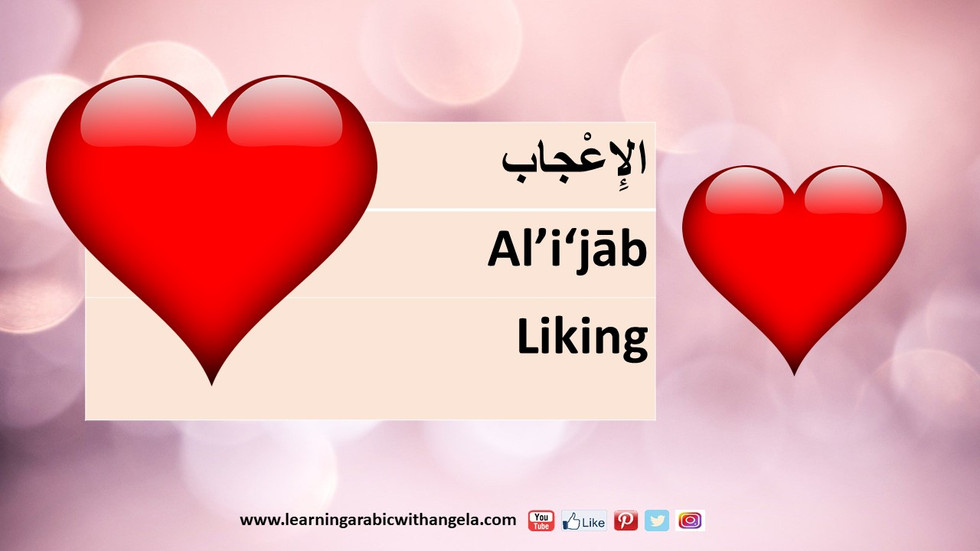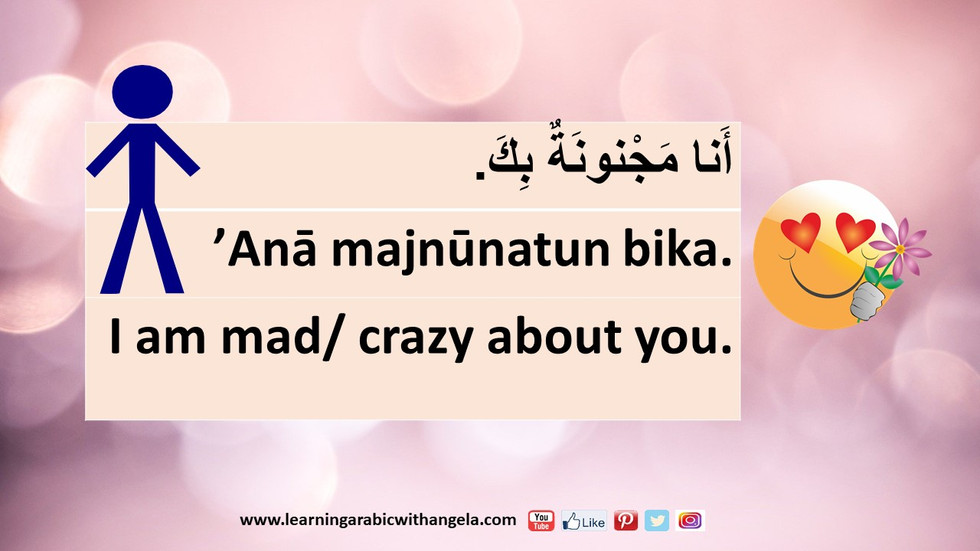How to say "I love you" and Other Love Vocabulary and Expressions in Arabic
Did you know that "al-ḩubb" الحُبّ is not the only word for "love" in Arabic Language?
Arabs are famous for their intense, passionate love poems and prose. In ancient Arabic literature, poets typically describe "stories of unrequited love" or "platonic love", where the lovers cannot be married or united, and ultimately suffer from their love. Ancient Arab poets also addressed their beloved in the masculine form, due to the strict cultural norms and traditions.
A famous Arab poet from the "Jaahiliyya" pre-Islamic era Qays ibn Al Mulawwah’s (late 7th century) composed legendary poems of unfulfilled love for his lover Layla. He was even called "Majnounu Layla" مَجْنون ليْلى, which means: crazy for Layla (Layla’s madman); hence both earning the title of Romeo and Juliet of the Arab world:
"I draw a picture of her in the dust and cry, my heart in torment. I complain to her about her: for she left me, love-sick, badly stricken. I complain of all the passion I have suffered, with a plaint toward the dust.”
"أُصَوِّرُ صورَةً في التُربِ مِنها
وَأَبكي إِنَّ قَلبي في عَذابِ
وَأَشكو هَجرَها مِنها إِلَيها
شِكايَةَ مُدنِفٍ عَظِمِ المُصابِ
وَأَشكو ما لَقيتُ وَكُلَّ وَجدٍ
غَراماً بِالشِكايَةِ لِلتُرابِ"
The most famous modern time Arab poet is "Nizar Qabbani" نِزار قَبّاني (1923-1998), of Syrian nationality. He is still known as the “woman’s poet” and “poet of love”.
"I want to write you words That are unlike any wording, To invent a language for you alone To tailor it to the size of your body, To the breadth of my love."
"أريد أن أكتب لك كلاماً
لا يُشبهُ الكلامْ
وأخترع لغةً لكِ وحدكِ
أفصّلها على مقاييس جسدك
ومساحةِ حبّي."
It is also worth mentioning that in Arabic, a poet is literally called "a feeler" شاعِر "shaa'ir", i.e. someone who feels. This is how important feelings and romance are for Arabs. Their strong feelings and "commitment attitude is also expressed in their generosity and hospitality for their guest, for example.
Without further ado, let's start the lesson by watching this short video, which will guide you through the whole subject about love, starting with the basic vocabulary and phrases, to other useful synonyms. I chose the ones that are most commonly used in "Fusḩa" or Modern Standard Arabic, and those that are still relevant in our modern times, versus archaic or just "out of the dictionary" ones.
So, you might already know these basic words:

Let's scroll for the rest:
I hope the lesson was useful and enjoyable at the same time!(When sharing, please always share from the blog post link and mention the source.) Enjoy the free downloads and lessons. For more free Arabic learning and reading resources, check out our Stories and Downloads pages. Don't miss out on any new additions and free resources, subscribe to the blog (click subscribe from the main menu). And stay tuned by Liking our Facebook Page. It's the best way to stay in touch! You can also subscribe and watch our useful videos on YouTube, including short stories with explanation, one minute learning, and other!
.png)

















































































